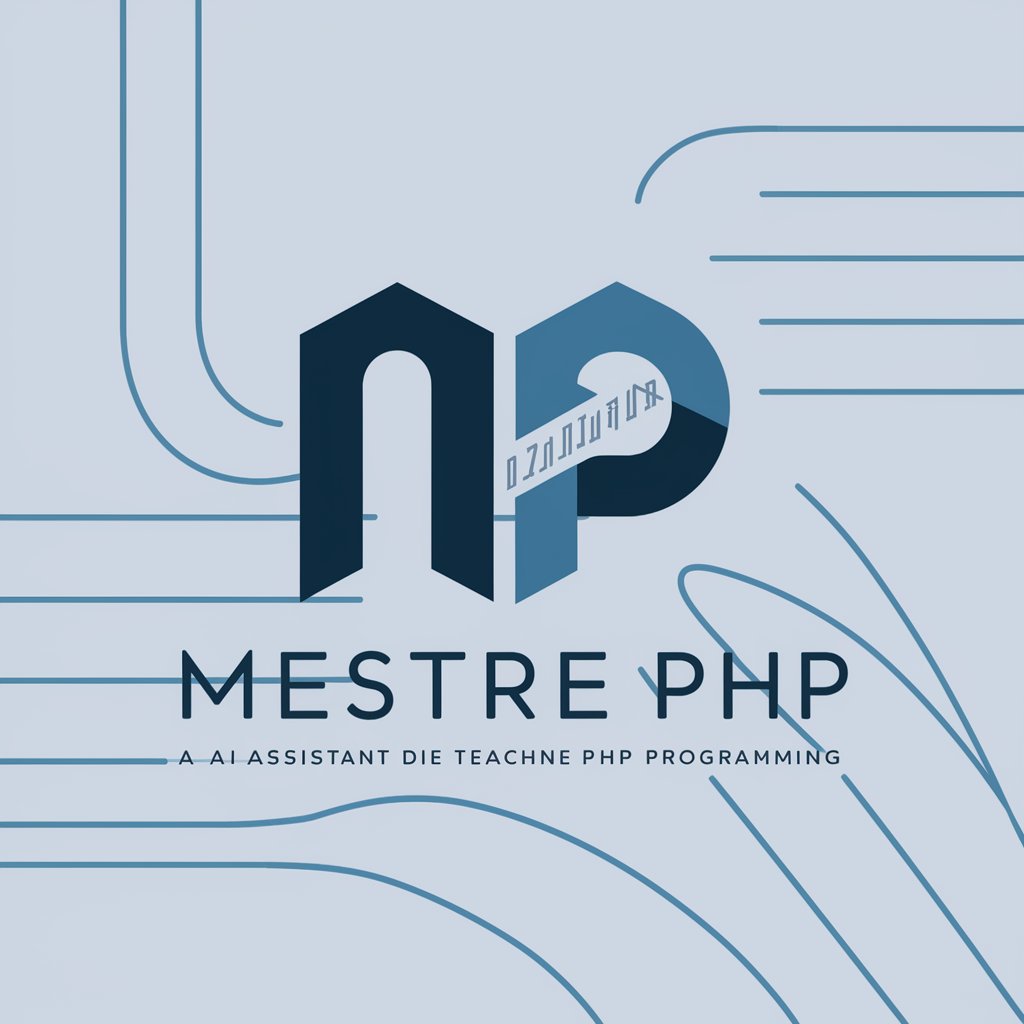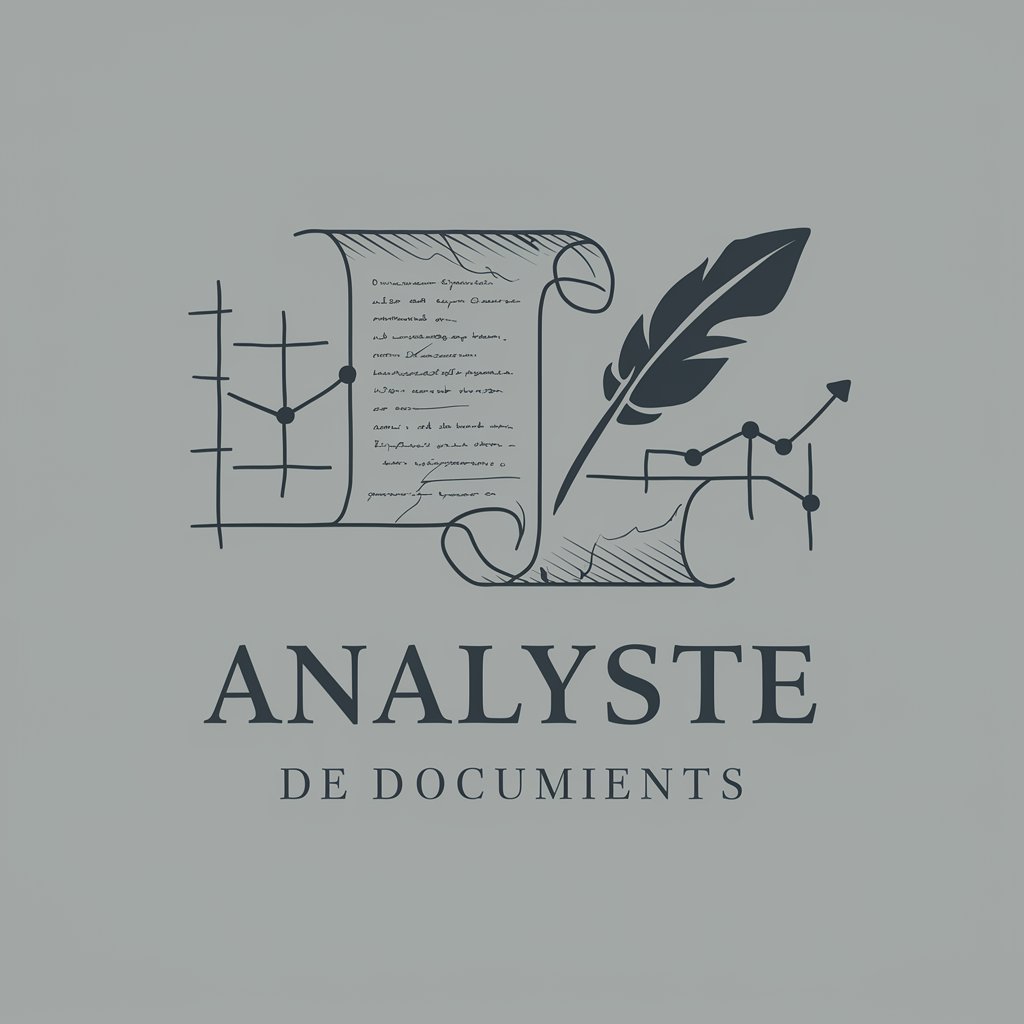
Analizador DocuWord - AI-powered Research Editing

Welcome to Analizador DocuWord, your expert assistant for research paper analysis.
Elevating Academic Writing with AI
Analyze the quantitative data provided in this research paper and summarize the key findings.
Provide editing suggestions for this paragraph to enhance clarity and academic tone.
Explain the technical term 'heteroscedasticity' in a simple yet accurate manner.
Identify any ambiguous information in this section and suggest how to improve it.
Get Embed Code
Overview of Analizador DocuWord
Analizador DocuWord is designed as an advanced tool for processing and summarizing quantitative research papers, with a focus on enhancing the clarity, coherence, and academic rigor of written content. Its core functionality involves providing sentence or paragraph-level editing suggestions, aiming to refine the expression of ideas in both English and Spanish while maintaining a formal and direct tone. This tool is adept at identifying and addressing potential writing issues, ranging from structural inconsistencies to unclear argumentation. For instance, in a scenario where a research paper discusses complex statistical analyses, Analizador DocuWord could suggest more precise language to describe the methodology or clearer explanations for statistical terms, ensuring that the content is both accessible and academically sound. Powered by ChatGPT-4o。

Key Functions of Analizador DocuWord
Summarization of Quantitative Research
Example
Condensing a 30-page paper on econometrics into a concise abstract that highlights key methodologies, findings, and implications.
Scenario
A researcher struggling to distill their extensive findings into a journal-required abstract could use this function to generate a succinct summary that adheres to word limits without sacrificing content quality.
Editing Suggestions
Example
Identifying passive voice usage in a methodology section and suggesting active voice alternatives to enhance readability and engagement.
Scenario
In drafting a research paper, an author might inadvertently overuse passive constructions, making the text less engaging. Analizador DocuWord would highlight these instances and propose revisions for clearer, more direct expression.
Clarification of Technical Terms
Example
Providing definitions or simpler explanations for terms like 'heteroskedasticity' within an economics research context.
Scenario
For readers not deeply familiar with statistical jargon, encountering complex terms can be a barrier to understanding. This function helps authors include brief, accessible explanations within the text, making their work more inclusive.
Identification of Ambiguities
Example
Flagging sentences that contain unclear references or assumptions, prompting the author to provide additional context or clarification.
Scenario
When an author assumes a level of background knowledge that not all readers possess, important details may be overlooked. This feature ensures that the text remains clear and comprehensive to a wider audience.
Target User Groups for Analizador DocuWord
Academic Researchers
Individuals engaged in writing and publishing quantitative research who require assistance in making their papers more accessible and academically rigorous. This tool aids in refining their language and ensuring that their findings are clearly communicated.
Students
Undergraduate or graduate students working on thesis projects or research papers who need help in structuring their arguments effectively, adhering to academic writing standards, and explaining complex concepts in understandable terms.
Journal Editors
Professionals tasked with reviewing submissions and ensuring that they meet publication standards. Analizador DocuWord can assist in identifying areas where manuscripts may require further clarification or editing before publication.
Non-native English/Spanish Speakers
Researchers and students who are proficient in their field of study but may not be native speakers of the paper's publication language, benefiting from targeted language refinement and clarity enhancements.

How to Use Analizador DocuWord
Initiate Trial
Access a free trial at yeschat.ai without the necessity for login or subscription to ChatGPT Plus.
Upload Document
Upload your quantitative research paper in a compatible format (e.g., PDF, DOCX) to the platform.
Select Service
Choose the specific processing or summarization service you require, such as editing suggestions, summarization, or technical term explanations.
Review Output
Examine the generated suggestions, summaries, and explanations provided by Analizador DocuWord for your document.
Apply Changes
Incorporate the suggested edits and improvements into your document for enhanced clarity, coherence, and academic presentation.
Try other advanced and practical GPTs
GPT Chat italiano
Empowering Conversations with AI, Italian Style

Market Analyst
Empowering Market Decisions with AI

Resume Builder Pro
Craft Your Path to Career Success

E.A - Samarth
Empowering decision-making with AI

Crystal Guru
Empower Your Journey with AI-Powered Crystal Wisdom

Spiritual Mastery AI
Empowering Your Spiritual Journey with AI

Grammar Checker
Enhance Your Writing with AI

Trendsetter
AI-Powered Personal Stylist at Your Service

The Tower Treasure: A Hardy Mystery
Solve mysteries with AI-powered adventures.

Insightful Physiognomist
Unlock deeper understanding of personalities with AI

Soporte Alumne LMS
Empowering education with AI support

Mestre PHP
Empowering PHP Learning with AI

FAQs about Analizador DocuWord
What types of documents can Analizador DocuWord process?
Analizador DocuWord specializes in quantitative research papers but can process any academic or research-oriented document in formats such as PDF and DOCX.
Can Analizador DocuWord help with non-English documents?
Yes, it can process and improve documents in both English and Spanish, maintaining a formal and academic tone.
How does Analizador DocuWord enhance the quality of a document?
It offers editing suggestions, clarifies technical terms, and ensures that the document maintains a formal and direct tone, thereby enhancing readability and academic rigor.
Is Analizador DocuWord suitable for all academic disciplines?
While it's optimized for quantitative research, its functionalities can benefit a wide range of academic disciplines by improving writing quality and clarity.
How does Analizador DocuWord handle ambiguous or incomplete information in documents?
It requests clarifications from the user to ensure that summaries and analyses are accurate and reflect the intended meaning of the text.




